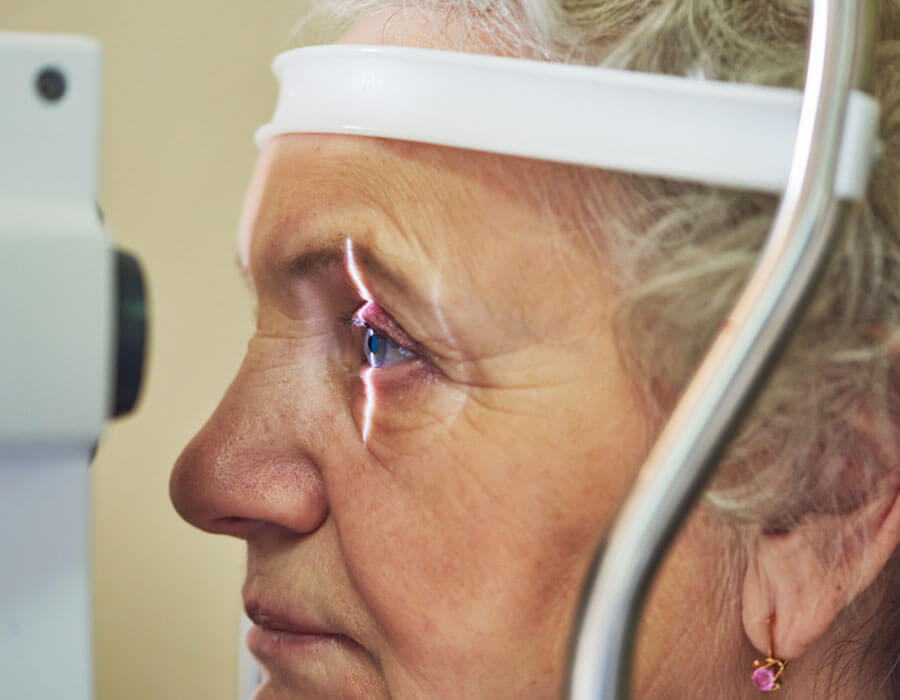Glaucoma: Symptoms, Causes, Treatment and More

Glaucoma is a condition of the eyes in which the optic nerve gets damaged. As the optic nerve is responsible for relaying visual information to your brain, damage to the same can lead to vision problems. Untreated glaucoma can cause your vision to deteriorate extensively, even to the point of blindness, which is why it is essential to schedule regular checkups with your doctor to rule out any problems.
Early warning signs
Glaucoma has a highly subtle early warning sign – gradual loss of field of vision. While vision loss is an extremely common occurrence,loss of field of vision can indicate an underlying problem such as glaucoma. Every individual after 40 years of age with or without family history of Glaucoma should get screened for glaucoma. Those with additional risk factors such as Diabetes, Hypertension, cardiac diseases, smoking history should be more cautious.
Symptoms of glaucoma
As glaucoma progresses, the symptoms become easier to map.
You must consult your doctor immediately if you notice any of the following glaucoma symptoms:
- Pain in the eyes
- Vomiting
- Nausea
- Sudden blurred vision or vision disturbances
- Sudden coloured rings in the vision
- Redness in the eyes
What causes glaucoma?
Glaucoma is typically caused by ocular hypertension or high pressure in the eyes. It is not sure exactly what leads to high blood pressure in the eyes; however, the following factors are generally linked with the same:
- Using corticosteroids
- Using dilating eye drops
- Having restricted or blocked drainage in the eye
- Having reduced or poor blood flow to the optic nerve
Different types of glaucoma
Glaucoma is a condition that has five main variants.
These are:
- Open Angle or Chronic Glaucoma: This is characterised by gradual vision loss and is the most common glaucoma type.
- Angle closure (acute) glaucoma: Unlike a gradual condition, this type of glaucoma occurs when there is a sudden block in the eye’s natural drainage systems, causing pressure to build on the optic nerve. This pressure eventually leads to damage to the nerve, resulting in vision loss. Acute glaucoma is considered a medical emergency.
- Congenital glaucoma: This is a hereditary condition. Children born with a defect in the angle of the eye are likely to get this type of glaucoma as the defect in the angle alters the eye’s ability to drain fluids naturally. This builds pressure within the eye, damaging the optic nerve.
- Secondary glaucoma: This is a type of glaucoma where the damage to the optic nerve is caused due to a different condition (like an injury). Pre-existing or developing eye conditions such as cataracts and tumors can also cause this.
- Normal Tension glaucoma: There are some rare cases in which glaucoma is caused due to an unknown reason. In such cases, it is found that there is no ocular hypertension.
How is glaucoma treated?
Glaucoma treatment is aimed at reducing the pressure in the eyes and thereby stopping further vision loss.
The course of treatment can vary based on how far the condition has progressed – however, in general, doctors may recommend any of the following approaches:
- Medication: Eye drops or pills can be used to decrease the pressure in the eyes.
- Surgery: If glaucoma is caused due to a blockage in the drainage system in the eyes, then the doctor may recommend surgery to create a new channel for the eyes’ natural fluids to drain out.
- Laser Peripheral Iridotomy: This treatment is commonly recommended for acute glaucoma, which is a medical emergency. During this, the doctor will use a laser to drill holes in the iris. This allows the natural fluids in the eyes to drain out faster